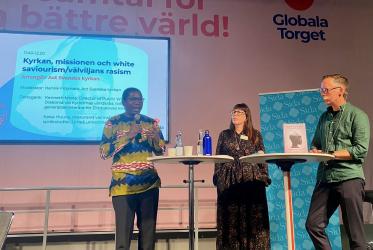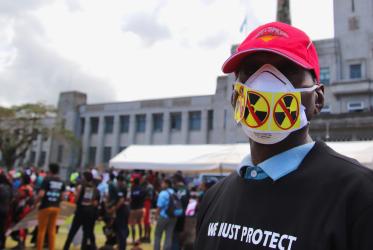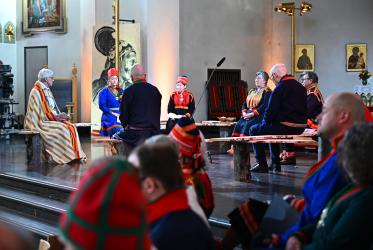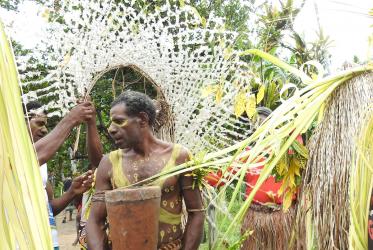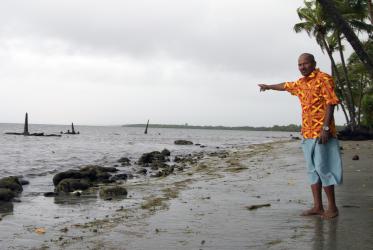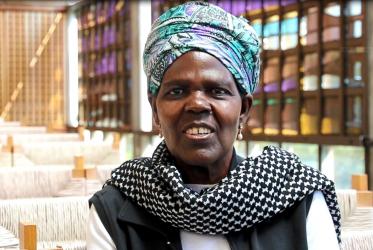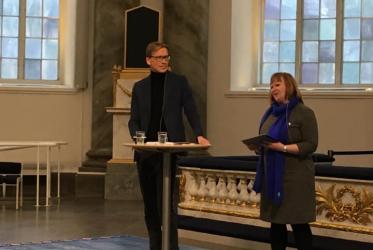Displaying 1 - 20 of 80
Pacific churches call for Japan to halt wastewater dump
29 August 2023
Church of Sweden apologizes to Sámi people, this time in Sápmi
27 October 2022
Church of Sweden publicly apologises for abuse of Sámi people
26 November 2021
Pacific Theological College publishes “A COVID-19 Wellbeing Statement”
03 September 2021
Churches should use their voice on climate change
26 February 2020
The cry of the Papuans in Indonesia
14 November 2019
WCC moderator “A call for equality in God’s house”
08 April 2019
Ecumenism is a sense of belonging
08 February 2019
